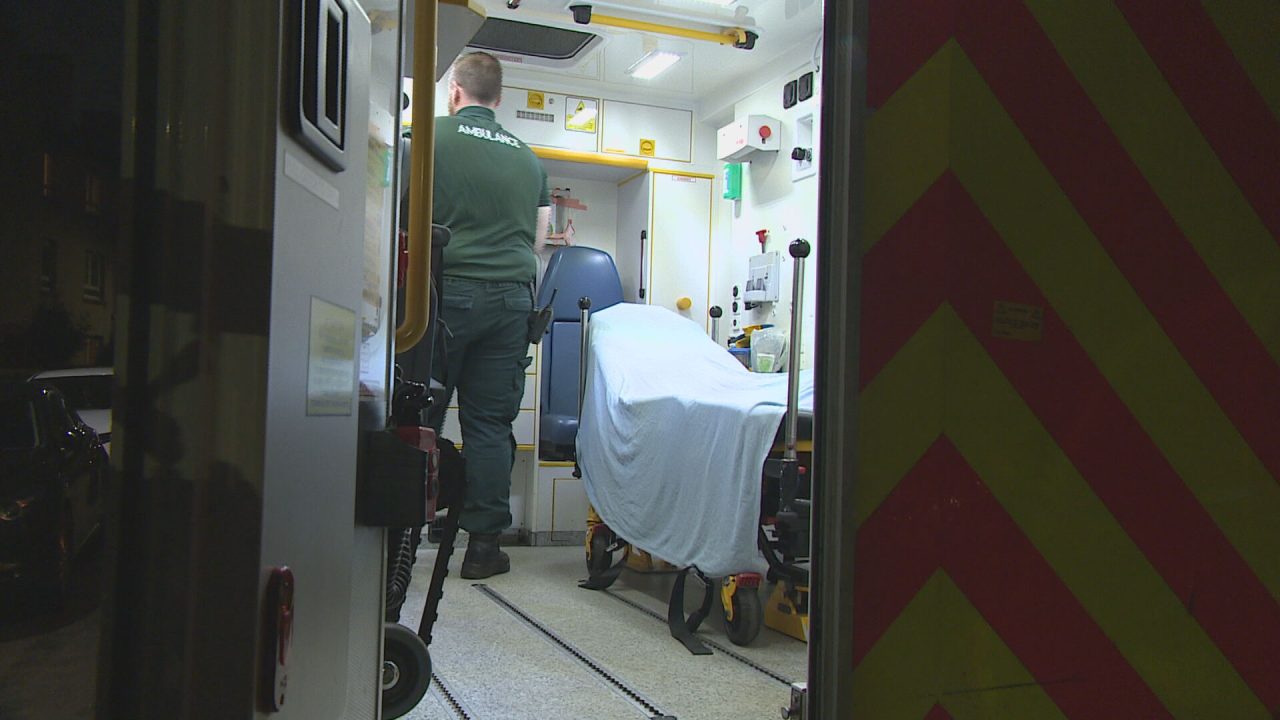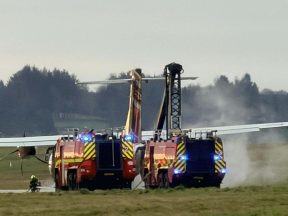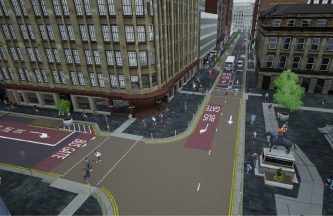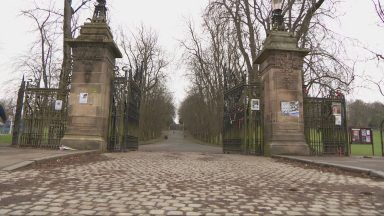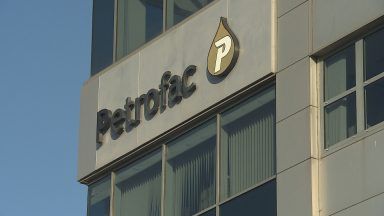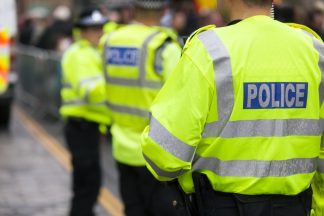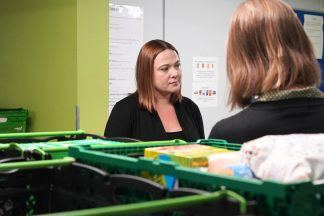It’s Friday night in Edinburgh just weeks before Christmas and paramedics are already braced for a busier than normal shift.
Kyle Hamilton and technician Stevie Crawford are barely half an hour into their nightshift when the first call comes in; an 86-year-old woman has fallen at home and can’t get up.
Within 15 minutes, they’re on the scene and asking Elizabeth if she can hear them.
She is stuck behind a door and in a lot of pain.
The team works quickly to make her comfortable while reassuring her family and assessing the situation.
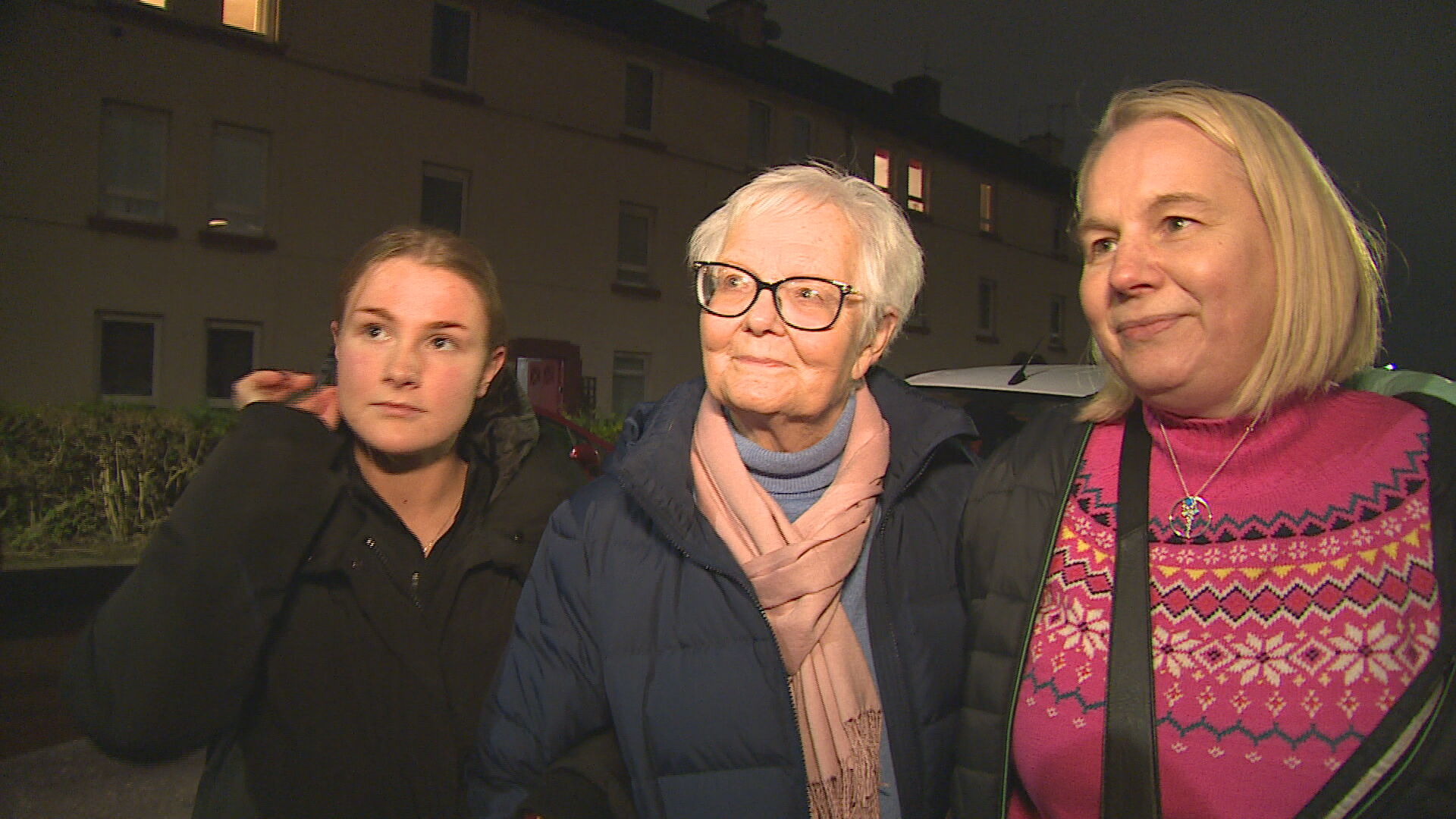 STV News
STV News“We’re going to give you morphine, Elizabeth. We think you’ve broken something.”
Whenever possible, paramedics try to ease pressure on emergency departments by treating patients at the scene or in their homes. But often, such as on this occasion, a trip to A&E is still necessary.
STV News was invited to spend a shift with ambulance crews last Friday – one of the busiest nights of the festive period in the capital for emergency service workers.
As pressures build on Scotland’s NHS, many on the frontline say winter challenges are now becoming a year-round reality, with long waits and overwhelmed services now the norm.
Many paramedics say they feel they’re just “papering over the cracks,” especially since Covid, when things took a sharp turn.
As Elizabeth is carefully moved into the ambulance, her family stands by.
Her sister Anne Graham says she was worried when Elizabeth did not answer her phone after seeing her at lunchtime.
“I hadn’t heard anything back which was unusual,” Anne told STV News: I wasn’t too worried at first but an hour later, at 7pm, she phoned me. She’d fallen at around 3pm – she had obviously shuffled [to the phone].
“I got a taxi up and then I phoned my daughters. They’ve all been great.”
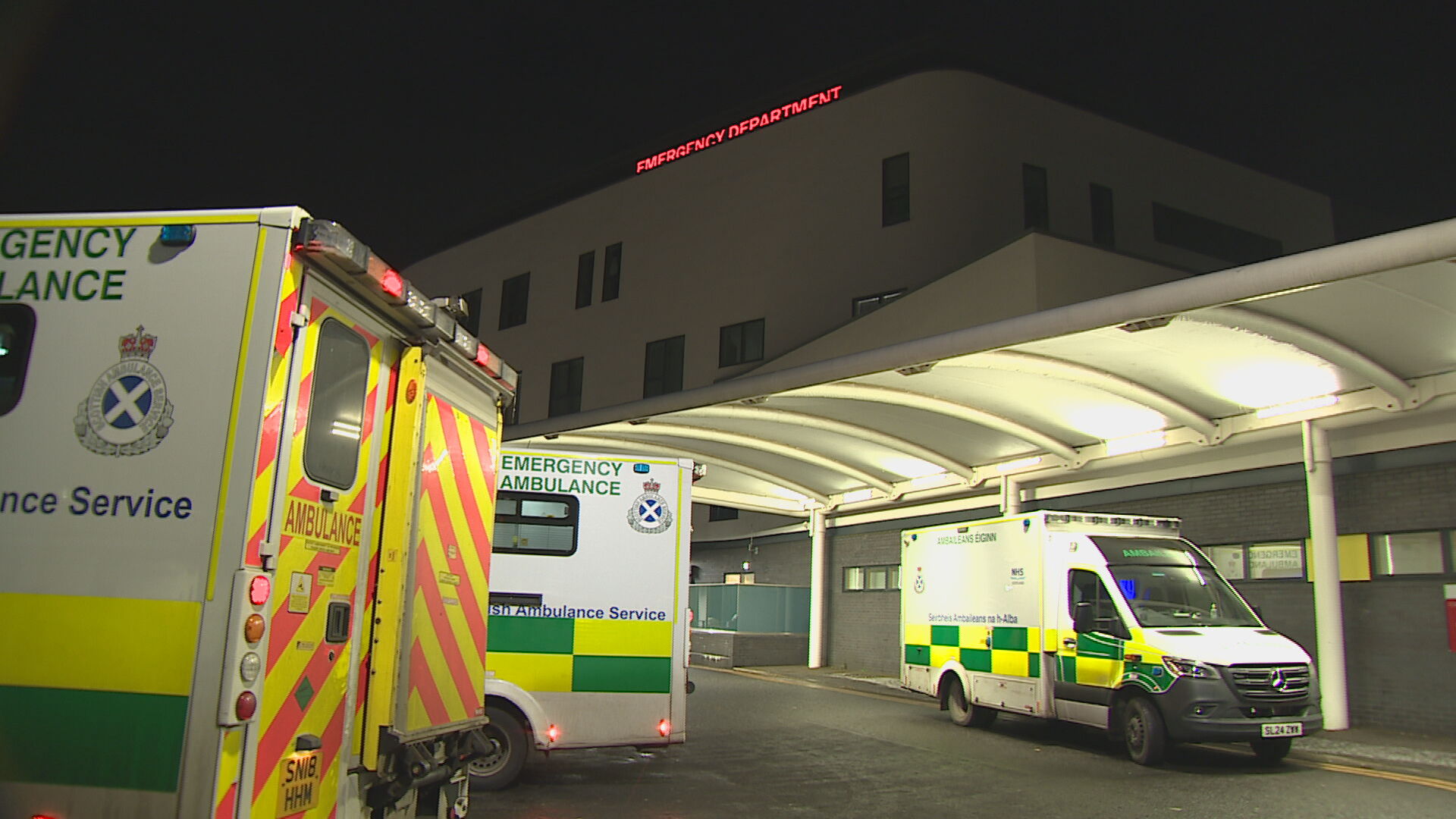 STV News
STV NewsPaula Greenhill, Elizabeth’s niece, said she called the ambulance, who triaged her aunt over the phone.
“They did say it might be some time, but the ambulance was very quick,” she said. “It must have been about 15 minutes, I think.
“We put a blanket on her and gave her a hot water bottle – they had been clear not not to move her.
“They have been super, very professional and caring. My aunt was very proud and they were mindful of her dignity. It was really good service.”
When they arrive at A&E, the situation looks promising – there aren’t too many ambulances waiting outside.
For paramedics, the wait to hand over patients can be frustrating, tying them up for hours. But it’s good news for Elizabeth.
Stevie reassures her that it won’t be too long a wait.
“They’ve got a patient in resus at the moment. In about ten minutes, we’ll go inside and get you a further assessment,” he said.
Thirty minutes after arriving at A&E, Elizabeth is admitted for treatment.
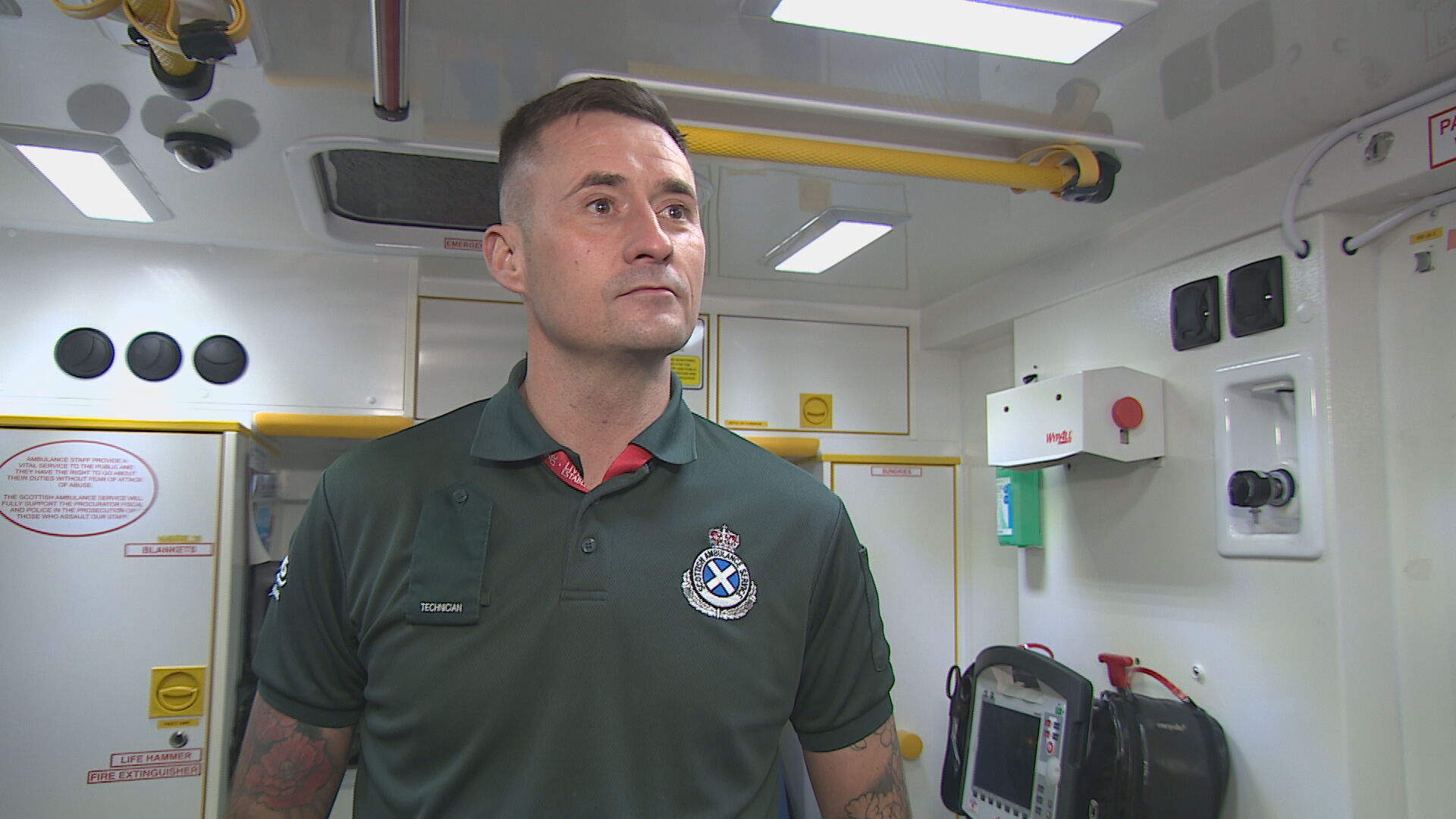 STV News
STV News‘Being able to handle chaos is key’
Stevie Crawford joined the ambulance service after 12 years in the Army.
He was inspired to change careers after calling paramedics to assist his mother-in-law during a heart attack in 2020, impressed by their swift action in getting her to the hospital.
“I love it – I get up in the morning and look forward to it,” he said.
“It’s challenging, like most jobs, but it offers different types of complex situations. Compassion, good interpersonal skills, and being able to handle chaos are key.”
While he hasn’t personally experienced a “drastic” level of alcohol-related incidents, he said the festive period has an impact.
“During the festive period, there are a lot more people going out,” he said.
“There’s obviously a bit more time consumed with regards to patients being taken to the hospital, and that adds a lot of pressure.
“We want to help as many people as possible, but it’s unfortunate that it’s very hard. We do our best.”
‘It’s impressive that it functions under this pressure’
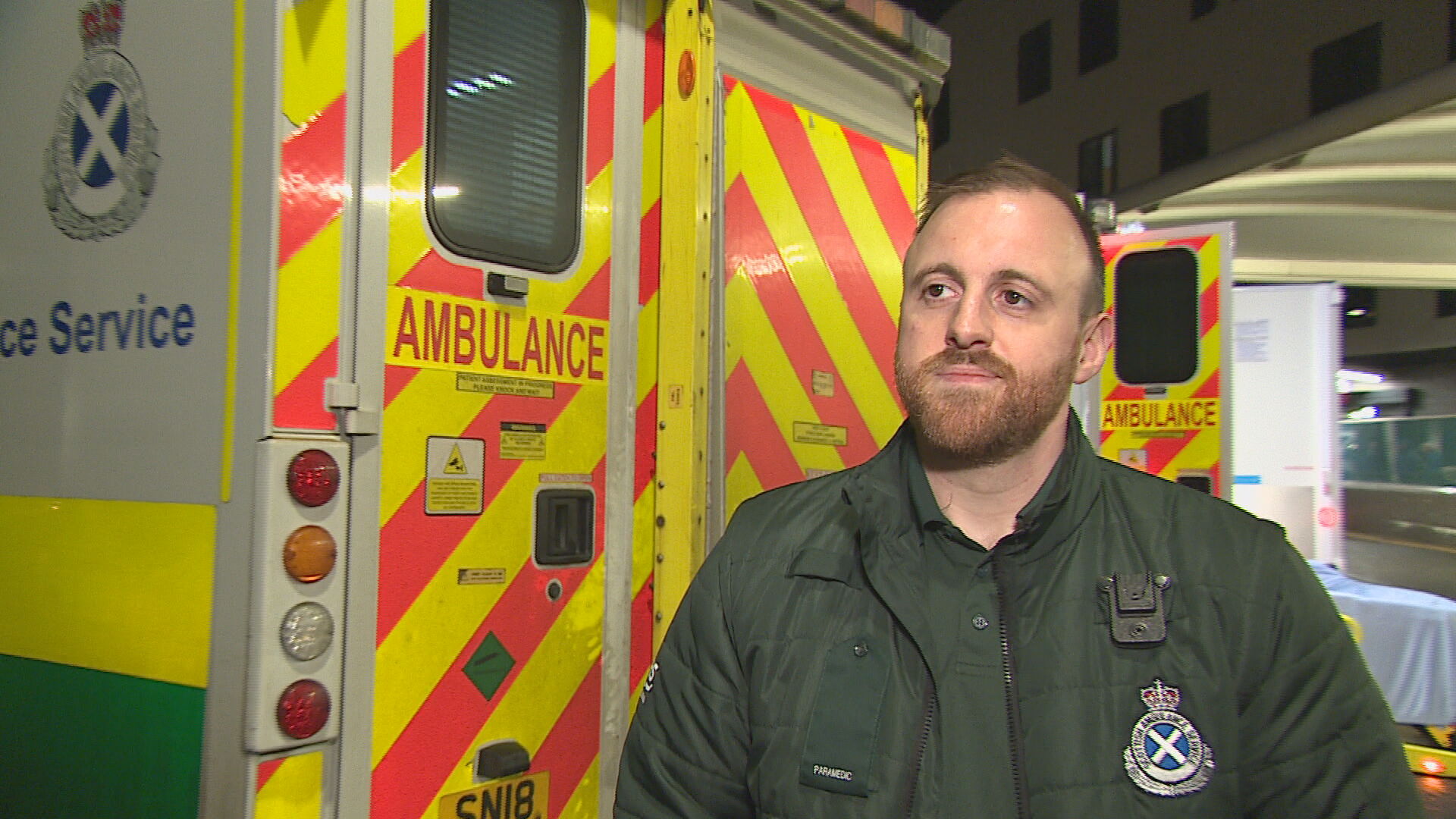 STV News
STV NewsKyle Hamilton has been a paramedic since 2017. He said things have changed “dramatically” from when he first started.
“It wasn’t as busy as it is now. In the last post-Covid years, things have changed a lot,” he said.
“We’ve heard stories from down south about eight-hour waits thinking: ‘That’ll never happen here, but now it’s becoming a reality.'”
He said Edinburgh has fared better than other parts of the country in terms of pressures on emergency services but it is still getting worse.
“We can’t go to calls quickly enough and we have calls we can’t respond to as ambulances are getting stuck,” said Kyle.
“Patients are uncomfortable, sometimes lying on a fairly uncomfortable bed for six hours until we get to them, which isn’t ideal.
“We’ve had to learn to manage and not get too frustrated, even though we can’t control certain things.”
A lack of specialised mental health training also means paramedics are often left to manage these situations, leading to longer shifts and jobs that take more time.
“The training we get isn’t specialised; it’s more about awareness and understanding,” said Kyle. “We pick things up as we go and gain experience by speaking to colleagues.
“If drugs or alcohol are involved, or if patients can’t access mental health services, it adds even more pressure.
“This has been going on for a long time, but generally, since Covid, we’ve seen a big jump in this (type of patient).”
‘You can see the calls stacking up’
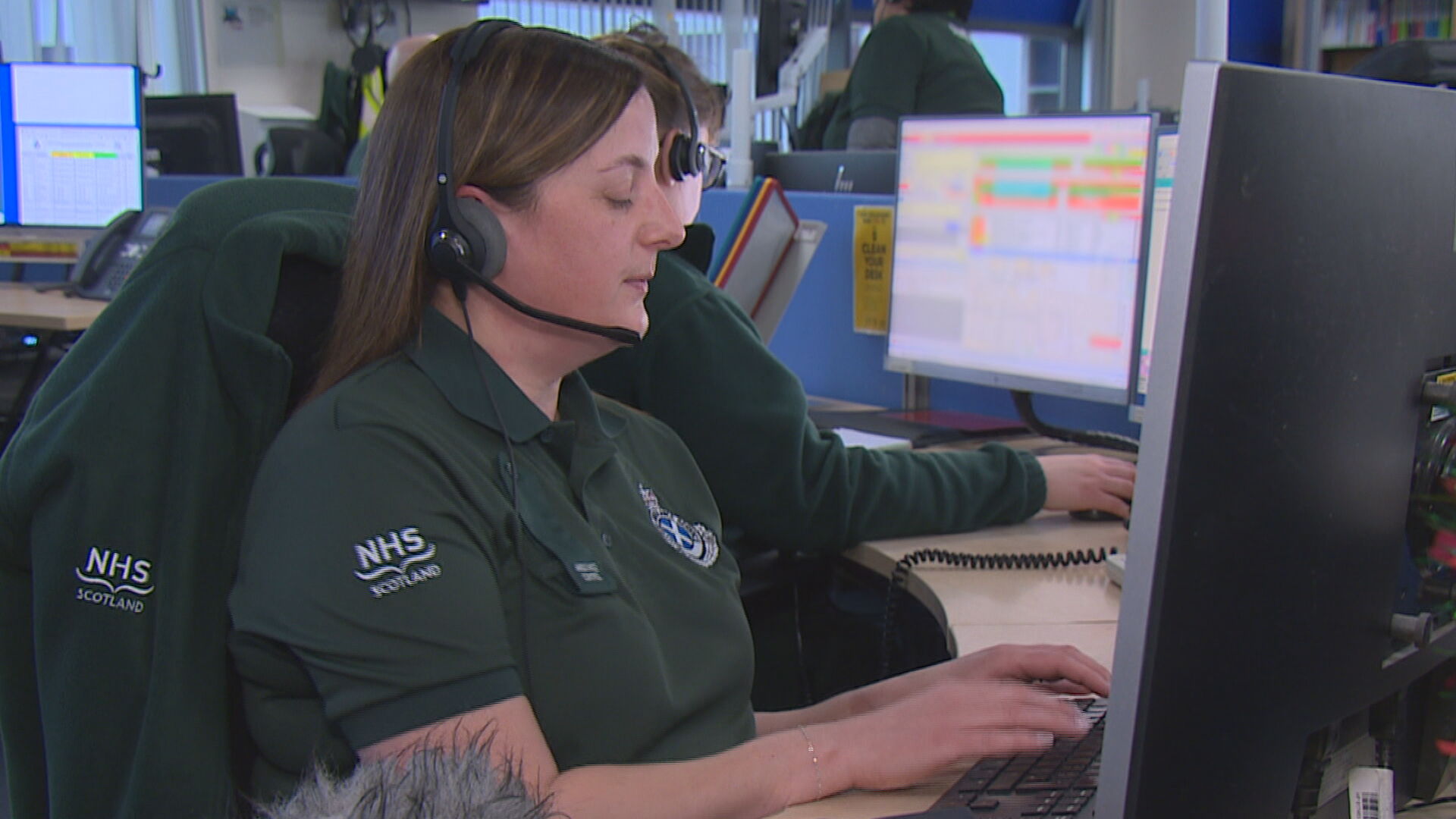 STV News
STV NewsStaff at the ambulance control centre in South Queensferry say it has been “extremely busy”.
“It’s busy throughout the year, but the last few weeks have been particularly hectic,” said emergency call handler Claire McCathie.
She said the service receives a “mixture” of calls and properly triaging patients is key to ensuring they get the best care.
“Bad weather leads to a lot of falls, and road traffic accidents and air incidents add to the pressure,” she said.
“You also get a lot of calls [for alcohol-related incidents] over the weekend, especially during night shifts from people in bars and pubs.”
“A lot of the calls don’t actually need an ambulance; they are signposted to NHS 24 or GP surgeries, which are still open.
“You can see the calls stacking up on the board, and that’s when escalation levels go up.”
Delayed discharges reach an all-time high
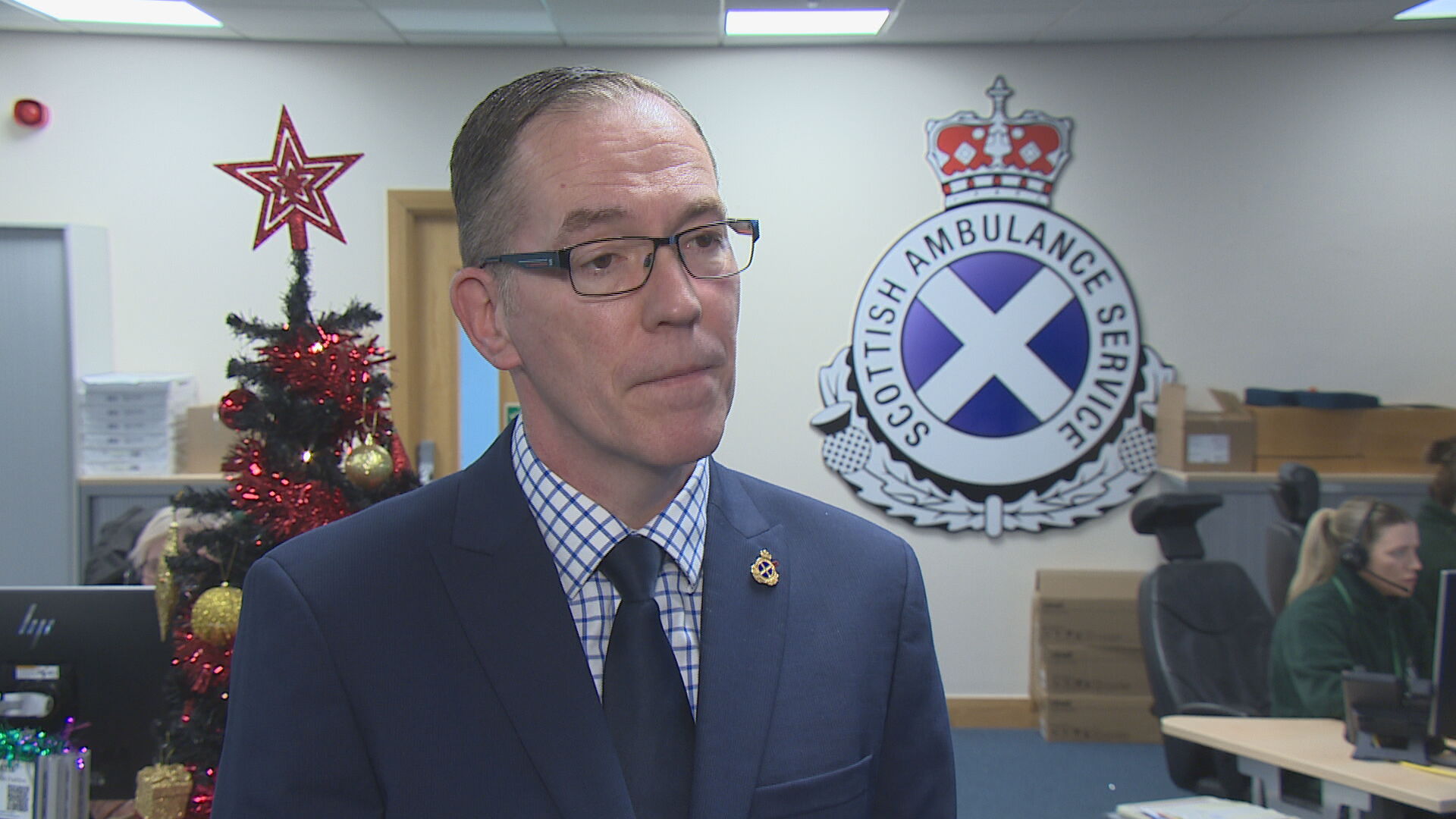 STV News
STV NewsMichael Dickson, chief executive of the Scottish Ambulance Service, said the service is still battling “system pressures” despite government investment due to “extended hospital handover times”.
Figures indicate that this winter will be particularly challenging for the health service, with delayed discharges having a knock-on effect on emergency response.
Mr Dickson said: “Delayed discharges have climbed to a level not seen before in Scotland. Hospital flow isn’t happening as we want it to. Sadly, this is happening throughout the whole year.
“Even when patients are flowing through the system, we still see people waiting outside A&E for far too long to be seen by clinicians.”
“We’re stepping up our preparations so we can support both patients and staff in getting the right care for them, wherever they might be.
“Realistically, if you phone 999, you’ll always receive an answer. We do have to prioritise immediate life-threatening calls. If you’re having a heart attack, stroke, or are critically unwell, we will always prioritise that call.
“This means people who are less unwell and not in an immediately life-threatening condition will have to wait longer. It just reflects the pressures and priorities we’ve got.
“We’d encourage people, before calling 999, if not in a life threatening condition, refer to NHS Inform NHS 24 or wait to see their GP in hours.”
Follow STV News on WhatsApp
Scan the QR code on your mobile device for all the latest news from around the country


